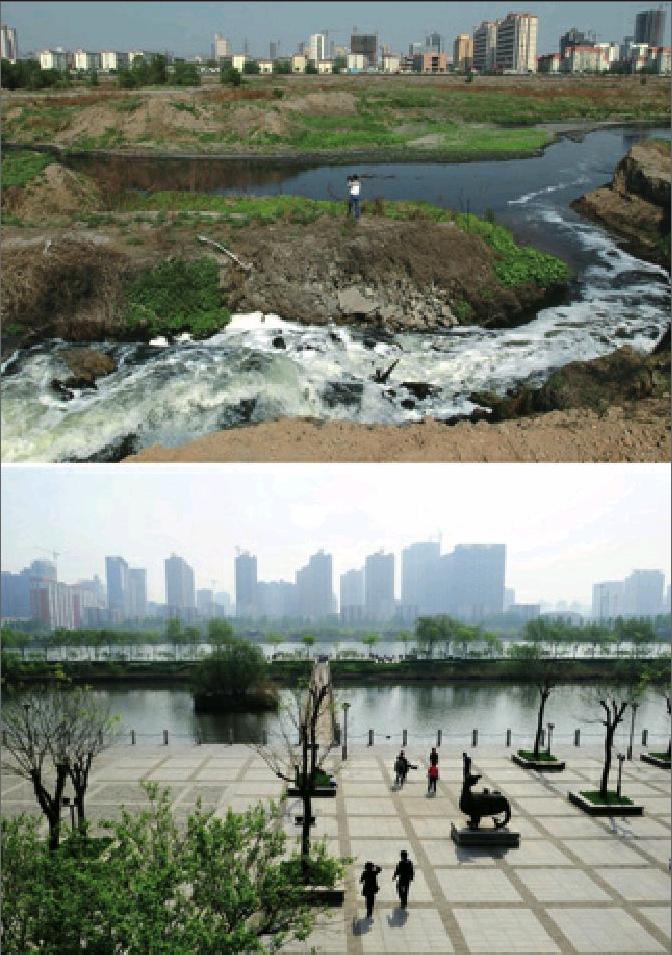Letting Go of GDP
2014-09-23ByWangJun
By+Wang+Jun

East Chinas Fujian Province is preparing for the adoption of a more reasonable set of standards to evaluate local government performance, which may give officials in localities with lower economic growth cause to feel a bit more relaxed.
In August, the Fujian Provincial Government announced that it will gauge the overall performance of 34 counties or cities by their development of agriculture and ecological protection rather than growth of gross domestic product (GDP).
Until now, more than 70 county-level regions in the provinces and autonomous regions of Shanxi, Ningxia, Hebei, Zhejiang, Shaanxi, Guizhou and Fujian have abandoned evaluation of local government performance by GDP growth alone.
The said counties and cities fall into three categories: economically under-developed regions, such as the 36 counties in Shanxi in the north; regions of significance in ecological protection or agriculture, such as the 34 counties and cities in Fujian; and ecologically vulnerable areas that must necessarily restrict their development, such as counties and cities in Guizhou in the southwest.
However, a nationwide shift may prove to be difficult, as GDP growth is still a major tool to assess the development level of most of the countrys 2,000 counties and cities.
“We all know that GDP should not be the be-all and end-all of our work, but it is really hard to implement this in practice,” an anonymous county government official told Beijing-based International Financial News.“We have become accustomed to competing with neighboring counties in terms of GDP growth. But now the rules of the competition have changed, and we also need some time to adjust.”
He lamented that in some underdeveloped regions in west China, local governments are particularly eager for higher GDP growth. “We are facing great challenges because we must both develop and transform the economy. Without transformation, economic development will not be sustainable, but where is our road to fulfill the mission?” he said.
Impetus and pressure
China began official calculation of GDP in 1985. Since then, the aggregate measure of total economic production has borne witness to Chinas economic takeoff.
“Changing the focus of evaluation criteria from GDP growth to ecological protection is both an impetus to, and pressure upon, environmental departments,”Liu Shengpeng, head of the Environmental Protection Bureau of Anxi County in Fujian, told The Economic Observer, a Beijing-based business weekly.endprint
In 2012, Fujian formulated a development plan dividing its 84 cities and counties into four categories with different functions of optimized development, key development, agricultural production and ecological conservation.
Incorporated into the provinces agricultural and ecological zones, Anxi is numbered among the 34 counties and cities of the province that will not be evaluated on GDP growth. This means the most important task for local officials will be ecological protection.
Liu felt that he has a greater responsibility. He believed emphasizing ecological protection instead of GDP growth will make local government officials focus on indicators of environmental protection, such as forest coverage and per-capita area of afforested land.
To protect the environment, Anxi has paid a heavy price. In 2011, all of the countys 630 stone material factories were closed, which reportedly incurred a loss of 2 billion yuan ($324 million) in the countys GDP and 150 million yuan ($24 million) in fiscal revenue. But the resulting environmental protection has helped the county attract some big projects in the photovoltaic industry.
Once a poverty-stricken county, Anxi has now taken its place as one of the top 100 counties in the country in terms of economic power. In the first half of this year, the countys GDP reached 16.7 billion yuan ($2.71 billion), rising 11.4 percent year on year.
“With government performance no longer being evaluated in terms of GDP growth, we will be able to spend more time and effort adjusting our industrial structure, and we will no longer go down the path of addressing the problem only after the damage caused by pollution has been done,”Liu said.
Although Fujian has announced its decision not to gauge 34 local governmentsoverall performance on GDP growth, it has not yet formulated detailed alternative policies on how it will measure their achievements.
Liu thinks since the government at higher levels has shifted the focus of work to ecological protection, they should allocate more administrative resources and powers to environmental protection departments. Otherwise, he claimed, this policy will not have the desired effect.
Ecological GDP
“GDP calculation is an indicator with a history of more than 100 years. It is unrealistic to completely abandon the measure,” said Wang Jinnan, Vice President of the Chinese Academy for Environmental Planning. endprint
endprint
“We hope ‘ecological GDP can replace conventional GDP,” said Wang Bing, a researcher with the Chinese Academy of Forestry. At the end of 2012, he proposed the concept of “ecological GDP,” a system in which environmental degradation and resource consumption are deducted from conventional GDP and ecological beneficial activities, such as conservation of water resources, are added.
An earlier concept was “green GDP,” proposed by Wang Jinnan and his team in 2004, which deducts resource depletion and environmental losses from the conventional GDP. Wang Jinnan said this statistical method still needs improvement.
Another potential indicator is “gross ecosystem product” (GEP), which was jointly introduced in 2013 by the International Union for Conservation of Nature and the Elion Green Foundation. The GEP will measure the gross product of both natural and artificial ecosystems—including forests, deserts, wetlands, farmlands, pastures and aquaculture farms—and corresponds to the gross domestic product of the area.
All three of the proposed indicators combine economic growth with ecological costs, and all have received the support of local governments across China.
An article in International Financial News revealed that Heilongjiang and Jilin provinces in northeast China now calculate their ecological GDP, while GEP has been adopted by Guangdong Province in the south. Guizhou in southwest China has been designated as a province for the research of GEP.endprint
